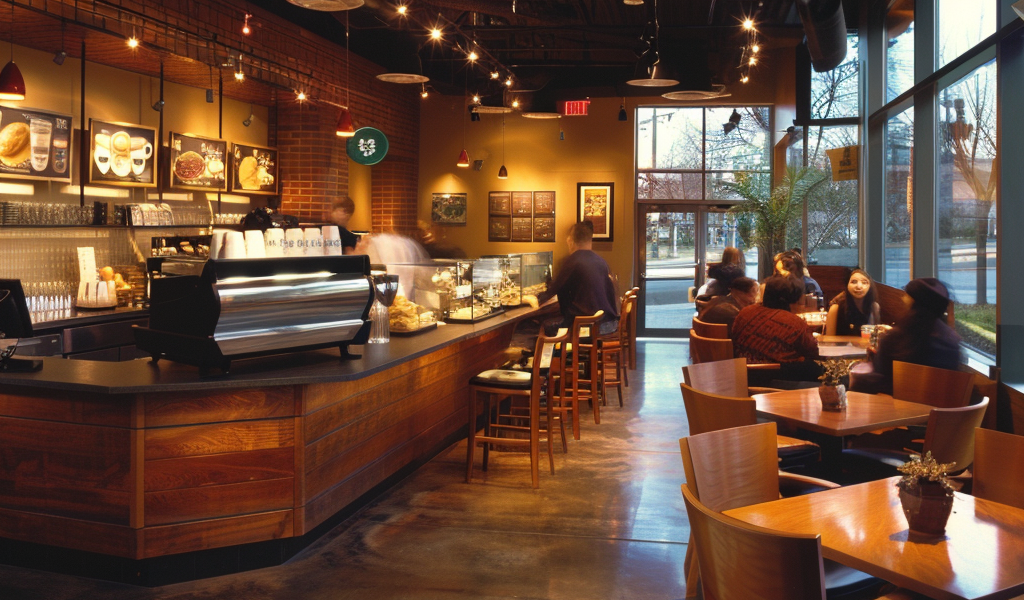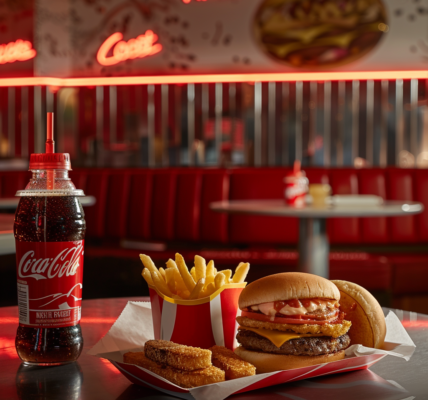Starbucks, the renowned coffeehouse chain, has been facing challenges in recent times, marked by declining sales and a shift in its business model. The company, which has traditionally been celebrated as a welcoming community coffee shop, has been transitioning towards a more transactional approach, emphasizing mobile orders and quick pickups. However, the newly appointed CEO, Brian Niccol, has plans to reverse this trend and restore Starbucks to its foundational identity.
On his second day in office, Niccol shared his vision in a letter directed toward employees and customers, expressing his commitment to transforming Starbucks back into a cozy “community coffeehouse.” He emphasized the importance of comfortable seating, an inviting atmosphere, and a clear distinction between “to-go” and “for-here” services. “There’s a shared sense that we have drifted from our core,” he remarked, highlighting the necessity to enhance the in-store experience. Niccol aims to ensure that Starbucks locations reflect the familiar sights, smells, and sounds that have long defined the brand.
Brian Niccol, recognized in the restaurant industry as a turnaround expert, previously led successful transformations at both Chipotle and Taco Bell. His appointment comes at a critical time for Starbucks, marking the fourth CEO transition within a two-year span, amid a notable slump in business performance and increasing pressure from both employees and investors.
Recent reports indicate that Starbucks has experienced a decline in sales over the last two consecutive quarters. Many customers have voiced their dissatisfaction with rising prices, delays in mobile order pickups, and a perceived lack of quality in food offerings. Additionally, Starbucks, once hailed as a progressive employer, is currently navigating a wave of union organizing efforts at various store locations, largely driven by employee concerns regarding working conditions, compensation, and benefits.
As Starbucks shifts from a predominantly brick-and-mortar model to a more online-centric business, mobile app and drive-thru orders now account for over 70% of sales across its roughly 9,500 company-operated stores in the United States. This shift has led to a more transactional atmosphere in some locations, with customers feeling rushed and overwhelmed by extensive menus, inconsistent product quality, and long wait times.
In his letter, Niccol acknowledged these challenges, noting that many stores, particularly in the U.S., can feel overly transactional. He expressed his intention to focus on “empowering” baristas, ensuring they are equipped with the necessary tools and adequate time to craft quality beverages. Employees have raised concerns that the influx of mobile orders can become overwhelming, placing undue stress on staff members.
Despite some scrutiny regarding his decision to maintain a residence in Newport Beach, California, rather than permanently relocating to Starbucks’ Seattle headquarters, Niccol has committed to spending time in stores, at the corporate headquarters, and engaging with Starbucks employees worldwide. This approach aims to foster a deeper understanding of the operational challenges facing the company and to facilitate meaningful changes that align with the brand’s heritage.
As Starbucks embarks on this journey of transformation under Niccol’s leadership, the company is poised to revisit its roots, striving to create an environment that resonates with both customers and employees alike.





